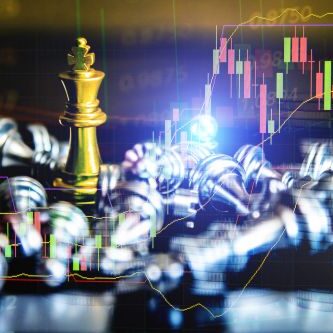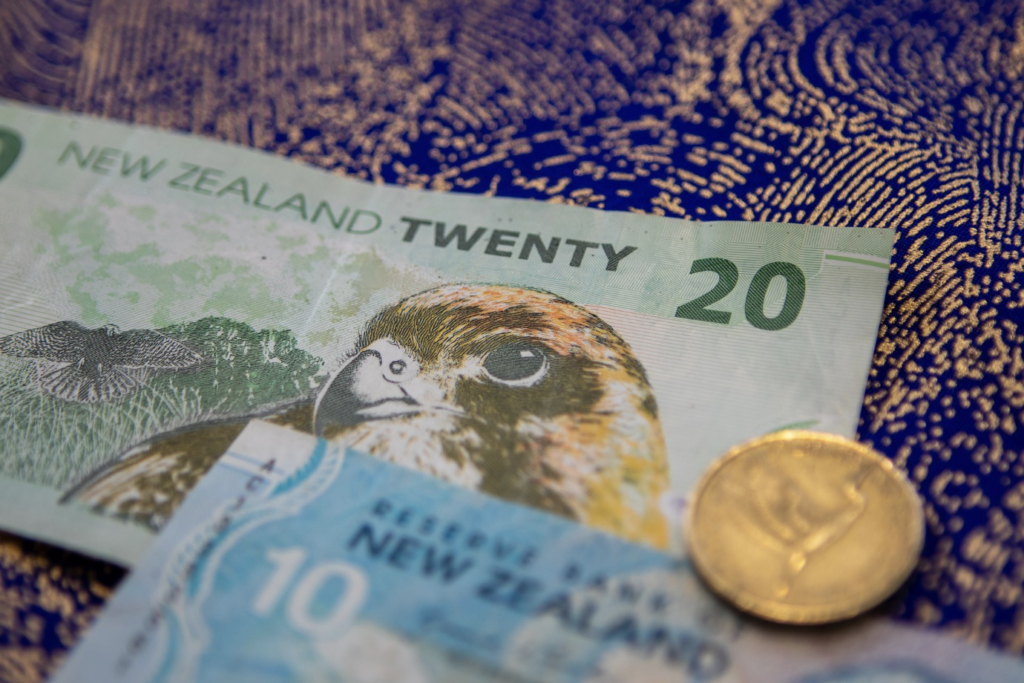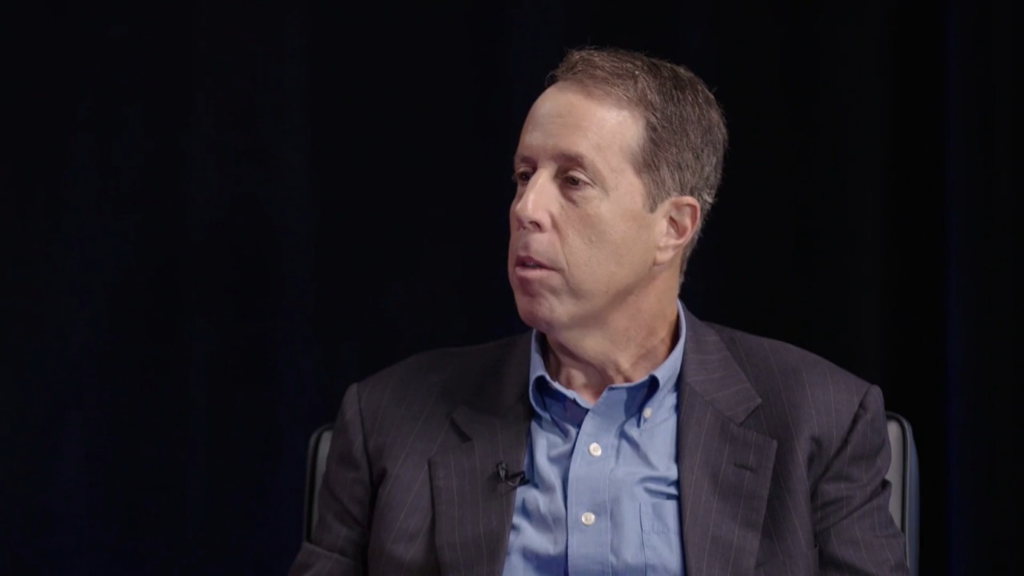
FXgram
The Ugly Truth About Trading
Related Posts
How to Make $300 Million and Crash a Country's Currency: The Story of Andy Krieger
Trader Andy Krieger made history with a single transaction – he inflicted huge damage on New Zealand by betting against its currency and earned $300 million. Then he faded into obscurity to such an extent that he was considered the creator of Bitcoin.
Super successful traders are usually well-known — their stories are hyped by the media, films are made about them, and they themselves write inspiring books. But Andy Krieger is not like that — this man has shunned publicity, although he would certainly have been popular.
33 years ago, he single-handedly crashed New Zealand’s national currency and caused the country billions of dollars in damage. With just one transaction, he entered the history of trading. To this day, Krieger is considered one of the most successful currency traders in history — only George Soros has earned more in a single currency market transaction.
Published by FXgram on December 9, 2023
Open a trading account with a Broker right now
Read the Risk Warning before you register
Studied Eastern Languages and Philosophy, but Became a Trader
Krieger first got involved with stocks at the age of four: at that age, he was already giving recommendations for their purchase. “I loved two things: baseball statistics and Wall Street quotes. I would look at them for days, compare and choose stocks to buy. I didn’t have video games, so I sat with my dad and told him that he should buy this or that paper. I remember some of them growing quite well,” he said in the Big BIG Trade Event show on YouTube.
Krieger’s education is quite atypical for a trader: he studied Sanskrit, Bengali, Hebrew, and Indian philosophy at the University of Pennsylvania and planned to become a professor of philosophy. However, Andy was then advised to continue his education at Wharton School of Business, where he received an MBA and meanwhile interned at JP Morgan.
Soon he got his first serious job: he became a currency trader at the American investment bank Solomon Brothers in 1984 at the age of 28. “My first boss told me: ‘Welcome aboard! I’m sure you’ll do great, relax. But if you start losing money, you’ll be out of here like a bullet.’ It was not very comfortable,” Krieger said.
Trading changed Andy — for example, having been a vegetarian for a long time, he returned to eating meat. The explanation was this: trading on the stock exchange is so aggressive that it’s silly to worry about harming animals.

Two years later, he moved to one of the largest banks in the United States of the 20th century, Bankers Trust. It was there that he achieved his greatest successes. Andy traded so aggressively and effectively that by the end of his first year, he was trusted to manage a $700 million account — an amount larger than the GDP of some small countries at the time. Usually, traders were given deposits 14 times smaller (about $50 million).
At times, the amounts of transactions he conducted exceeded $1 billion. George Voyta, vice president of Bankers Trust, later admitted that no one could understand Krieger’s strategies. Andy justified the trust, earning a lot of money for the bank — but one day caused incredible turmoil.
Earned Hundreds of Millions, but Nearly Provoked an International Scandal
At Bankers Trust, Andy made the main deal of his life. It happened during the famous Black Monday on October 19, 1987 — that day the Dow Jones index plummeted by 22.6% and pulled down quotes around the world. The American dollar fell along with the Dow Jones, forcing investors to sell it and look for safe-haven assets, buying currencies of other countries, which suddenly became overvalued.
The most far-sighted traders realized that this was a chance to take advantage of artificially inflated prices. Krieger understood this first and after analyzing the market focused on the New Zealand dollar, also called “kiwi.” Since September 1986, it had been steadily rising against the American dollar — by Black Monday, the growth was about 40% and reached its peak.
Open a trading account with a Broker right now
Andy was “100% sure” of the overvaluation of the “kiwi” — he was just “not sure when it would collapse.” A few hours later, the trader opened a huge short position, betting against the New Zealand currency.
It was later calculated that only about $40 million of real money was used, but due to a staggering leverage of 400:1, the transaction amount grew to $15 billion. The size of Krieger’s short simply exceeded the entire money supply of the small country.

Krieger’s transaction nearly turned into an international scandal. A few hours later, the “kiwi” rate fell by 5% against the American dollar. Moreover, during the day, the New Zealand dollar fell up to 10%. As a result of the transaction, Krieger earned about $300 million for Banker Trust. New Zealand’s losses are estimated at about $3-4 billion — as other traders also opened shorts against the “kiwi” following Krieger.
The country’s losses could have been greater — rumors were that either the head of the New Zealand Central Bank or the Minister of Finance had to urgently call the bosses of Banker Trust and demand with threats that they leave the “kiwi” alone. Krieger himself allegedly arrogantly stated that New Zealand was too small a country to cope with the trading volumes that Bankers Trust could afford, which provoked even more dissatisfaction.
Krieger’s actions exacerbated the already terrible consequences of Black Monday for New Zealand’s economy: that day, its stock market fell a grandiose 15%, and by the end of the month, the decline reached 60% — no country in the world suffered more. The New Zealand market took several years to recover.
Krieger himself then received threats from New Zealand — he even had to hire security. He has not visited this country since.
Offended by the Employer for a Small Reward and Left for Soros
Krieger received only 1% of Banker Trust’s profit ($3 million) for this operation. This offended him — Andy later called it a “ridiculously small amount.” In 1988, he announced his departure from the bank to George Soros’s Fund — and interestingly, about the same time, $80 million disappeared from Banker Trust’s accounts. The bank’s capitalization fell by 2%.
The New York Times began an investigation and concluded that Krieger might have been involved in the theft. Another scandal erupted, but Andy’s guilt could not be proven.
The profitability of Bankers Trust’s currency trading increased from $50-60 million to $512 million a year with Andy’s arrival, and after his departure, it fell to $153 million.
Trades to This Day but Avoids Attention
Andy worked for George Soros for only a few months. After that, the trader went into the shadows and avoided communication with the press as much as possible. He went to Asia, where he met with Buddhist lamas and Hindu yogis.
After some time, he returned home and founded his own analytical agency Capital Holding Corporation, which advised clients and managed assets worth $500 million. It is known that he founded the firms Northbridge Capital Management, Krieger & Associates Ltd, and several others. Among his clients were billionaire and former US presidential candidate Ross Perot, as well as transnational companies such as Anheuser-Busch and Tiffanys.

In 1992, Andy wrote the book “The Money Bazaar” about currency trading, explaining how business magnates try to manipulate the market and control the value of world currencies.
It is also known that he donates 10% of his income to charity through the Karma Foundation, which funds educational projects and helps the disabled. In 2004, he donated $350,000 to the victims of the tsunami in Indonesia.
Now he teaches trading and still trades in the currency and commodity markets, but does so anonymously. Andy claims that only twice in the last 30 years has he ended the year at a loss. For example, the profitability of his transactions in 2007 exceeded 300%, and in 2008, in the midst of the crisis — 81%. According to the Wall Street Journal, Krieger’s firm earned $592 million in 2019.
More precise amounts of Krieger’s income remain secret, as does his life in general. His figure is so shrouded in mystery that he is on the list of people who could be hiding under the name Satoshi Nakamoto — the inventor of Bitcoin. But Andy humorously reacts to such rumors: “I was involved in coding, my daughter’s name is Josie, and his is Satoshi, so — maybe.”
Open a trading account with a Broker right now
Find more interesting stories and news about investments on our subreddit XGramatikInsights.

FXgram
The Ugly Truth About Trading
Related Posts
Risk Warning: Trading Forex and Leveraged Financial Instruments involves significant risk and can result in the loss of your invested capital. You should not invest more than you can afford to lose and should ensure that you fully understand the risks involved. Trading leveraged products may not be suitable for all investors. Before trading, please take into consideration your level of experience, investment objectives, and seek independent financial advice if necessary. It is the responsibility of the Client to ascertain whether he/she is permitted to use the services of the website based on the legal requirements in his/her country of residence.
Risk Warning: Trading Forex and Leveraged Financial Instruments involves significant risk and can result in the loss of your invested capital. You should not invest more than you can afford to lose and should ensure that you fully understand the risks involved. Trading leveraged products may not be suitable for all investors. Before trading, please take into consideration your level of experience, investment objectives, and seek independent financial advice if necessary. It is the responsibility of the Client to ascertain whether he/she is permitted to use the services of the website based on the legal requirements in his/her country of residence.